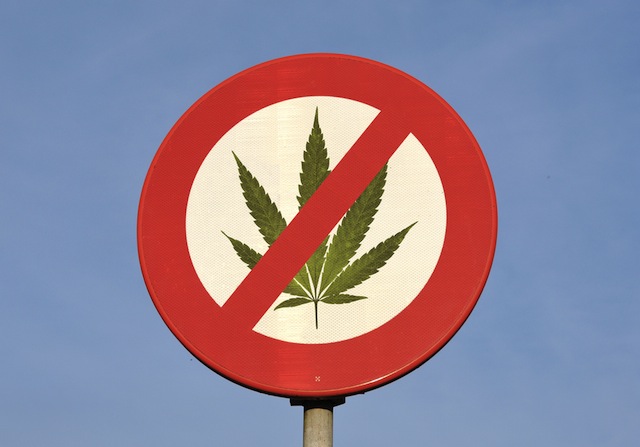Tuesday 19th April
- Bicycle Day
- UNGASS kicks of in NY
- National Ice Action Summit (www.iceactionsummit.com.au)
Wednesday 20th April
- Global 420 Celebration (cannabis)
- Melbourne 420 Picnic from 2pm at Flagstaff Gardens
- Deakin University SSDP drug event
The UN General Assembly Special Session (UNGASS) on the world drug problem kicks off in New York on today the 19th of April, a day that many people around the world will be celebrating as Bicycle Day, when the effects of LSD by Swiss Chemist Albert Hofmann were discovered 73 years ago.
In early April several thousand dollars were raised to support research into the potential therapeutic benefits of psychedelics like LSD. The event was held at the prestigious Florey Institute of Neuroscience and Mental Health at Melbourne University and funds were distributed between the Australian organisation PRISM (Psychedelic Research In Science and Medicine) and the US's MAPS (Multi-Disciplinary Association of Psychedelic Studies).

The UK Parliament passed legislation aimed at blanket-banning all psychoactive substances and then said it would not be enforcing the legislation due to significant concerns over how it would be enforced. This legislation is nearly exactly the same as legislation that was passed in New South Wales in 2013 and Western Australia in 2015, with mediocre levels of debate and no public or expert input. Ireland was the first to pass this kind of legislation in 2010 and it has been widely unsuccessful at increasing public safety, reducing drug consumption or prosecuting anyone.
Meanwhile, The Beckley Foundation and Imperial College in the UK recently published results from their collaborative research efforts into the effects of LSD, finding huge potential for further research and clinical application.
UNGASS had been reported optimistically as a potential opportunity to shift the global treaties on drug prohibition toward more pragmatic and progressive ends. While some countries are taking a more progressive angle to drug regulation, countries like Russia and China are holding on strongly to prohibition. The process so far looks like it will yield disappointing results for those hoping on progress around drug policies.
Drugs are a hotly divided issue. Nearly every week there is another editorial published in newspapers across Australia from a prominent expert in drug issues, calling for a re-think in how Australia deals with drugs. More and more drug users are standing up and asking for their voices to be included in policy making that directly affects their lives, saying “Nothing about us without us!” Researchers are pointing out that stigma and punitive policies make people's lives worse and don't solve the problems associated with substance abuse.
On the other hand, there are desperate pleas from family members calling on governments to do something to save their child/sibling/parent from the latest drug, whether it is one of the traditional drugs like methamphetamine or one of the new drugs, like the legal highs. Grieving parents are building anti-drug campaigns focused on strategies that experts have shown to be frivolous at best and detrimental at worst. Anti-drug organisations with predominantly religious and conservative leadership are lobbying governments to continue the morally bankrupt war on drugs.
Wednesday is a day of global celebration for the broad community of people who use cannabis. Melbourne will see a gathering of the cannabis community in Flagstaff Gardens to quietly protest the prohibition of their preferred plant. Protesting is a side issue to these members of society who just want to be able to get on with their lives.

This is the story at the heart of most drug issues. Most people who use drugs don't have a substance use problem, just like most people who drink aren't alcoholics and most people who gamble aren't addicted to gambling. While policy makers battle to control the poorly defined problem of the 'scourge of drugs', real people's lives are ruined by court dates, fines and jail time. All of this is done because we’re told we need to 'send the right message' on drugs, so that other people won't use them.
Here's a strategy that clearly doesn't work, because more people take a wider variety of drugs than ever before. Yet every death at a music festival, every death in a home, every person struggling with substance use and every supposed drug induced psychosis is held up by the authorities as an example of why we need to continue the regime that directly lead to those things happening.
Queensland has chosen to re-schedule cannabis and increase penalties for drugs, using the rationale of 'sending the right message'. Their announcement this week flies in the face of an almost global consensus that prohibition is not only bad policy, but harmful policy.

The only state that seems to be looking to actually engage with some experts and the public on the issue of drug policy is Victoria, with Fiona Patten's Inquiry into Illicit and Synthetic Drugs and Prescription Medication. This wide ranging inquiry will be looking into how Victoria currently approaches drug policy and what it could be doing better and is expected to report back in March next year. Yet even in Victoria, several members of parliament have grown concerned at anecdotes from concerned and grieving family members of people who are struggling with substance abuse, and begun to call on the government to introduce the same poorly thought-through legislation as NSW, WA, the UK and Ireland.
There's an Australian delegation in New York right now speaking at UNGASS, but information about who they are representing and how they will approach the session is scarce. Australia is deeply divided on the issue of drugs. Policy still seems to be written off the back of reactions to tabloid news reports about the latest drug to be scared of, while experts and consumers are sidelined.
Global prohibition was a failed endeavour from the outset and has caused misery across the world. Thinking more carefully about issues around drugs and moving away from the punitive 'messaging' approach and toward a health-based approach are small steps in the right direction. No amount of arresting, searching, spying and stigmatising Australians will make them better off. Neither will forcing people into treatment and spending millions on fear campaigns that are mocked around the world.
The Canberra Declaration on illicit drugs made clear that there is support for a different approach to drug policy. Victoria's inquiry paves the way for state-level discussions. The only way for meaningful change to arise is through wider discussions that seek to include the people who use drugs and experts in a variety of relevant fields.
FIONA PATTEN will be speaking at Students for Sensible Drug Policy (SSDP) Deakin University drug policy event on Wednesday evening.
https://www.facebook.com/events/209167249461201/
The AUSTRALIAN SEX PARTY - VICTORIA will be launching a petition for the Government to reverse its ban of the bong at the 420 rally on Wednesday.
Written by Nick Wallis
This email address is being protected from spambots. You need JavaScript enabled to view it.


